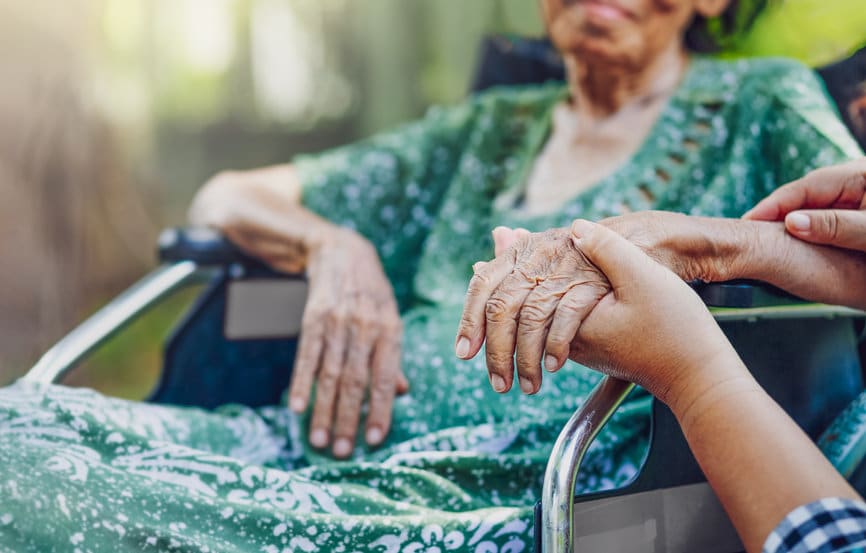The dry, cold temperatures of winter are approaching and for seniors and their families, it’s a time we should think about skin care, both to protect it and to make the skin healthier and feel more comfortable.
Skin Facts
Skin is the body’s largest organ. As we age, it becomes thinner and no longer looks as smooth or firm as it once did. Scratches, cuts, and bruises may take longer to heal, and age spots or even skin cancers can develop. But there are things that you can do to improve your skin, especially during the harsh winter weather.
Dry or Itchy Skin
This is a common issue here in the Southwest, and one that we address at BeeHive Assisted Living. Many older people experience dry skin, commonly on their lower legs, elbows, and forearms, places on the body where the skin is usually thinner.
Dry skin may happen for several reasons:
- Lack of enough liquids
- Very dry air in your environment
- Losing sweat or oil glands, which often occurs as we age
- Smoking
- Stress
- Having spent too much time in the sun
That means it’s vital to maintain hydration. Adding an extra few glasses of water, especially during the winter, may help improve the texture of the skin and reduce the itchiness that often results. At BeeHive’s assisted living homes, our caregivers help keep water glasses nearby and will prompt our residents to drink more.
Having a humidifier add cool moisture to the room may also help. If a family member requests a humidifier, we can add one to the resident’s room, carefully tucking electrical cords out of the way.
How to Help Aging Skin
The American Academy of Dermatology Association recommends some skin care tips to help have healthy skin in the senior years. They include:
- Keep showers short, about 5 to 10 minutes, using warm water instead of hot water
- Use fragrance-free, gentle bar soap or body wash and a soft cloth to gently clean
- Pat the skin dry afterward, leaving a bit of water on the skin, then apply a creamy, fragrance-free moisturizer within just a few minutes.
- Additional application of the moisturizer can be used throughout the day, particularly on the dry, itchy areas of your shins and forearms.
Our BeeHive caregivers are trained in helping our residents shower, and in helping protect their skin afterward. We’re also looking for other skin care issues that should be brought to the family’s attention or to the resident’s physician.
Other helpful changes are to be sure there are enough fruits and vegetables in your diet, dress to protect the skin (such as covering legs and arms during windy and cold weather, particularly if you’ll be outdoors), stop smoking, and limit or avoid drying substances like perfume or after shaves. If extremely dry skin is an issue, a visit with your physician may be needed; some kidney diseases and diabetes are tied to dry skin. He or she may want to check you for those or may prescribe other topical treatments to help with extremely dry skin.

